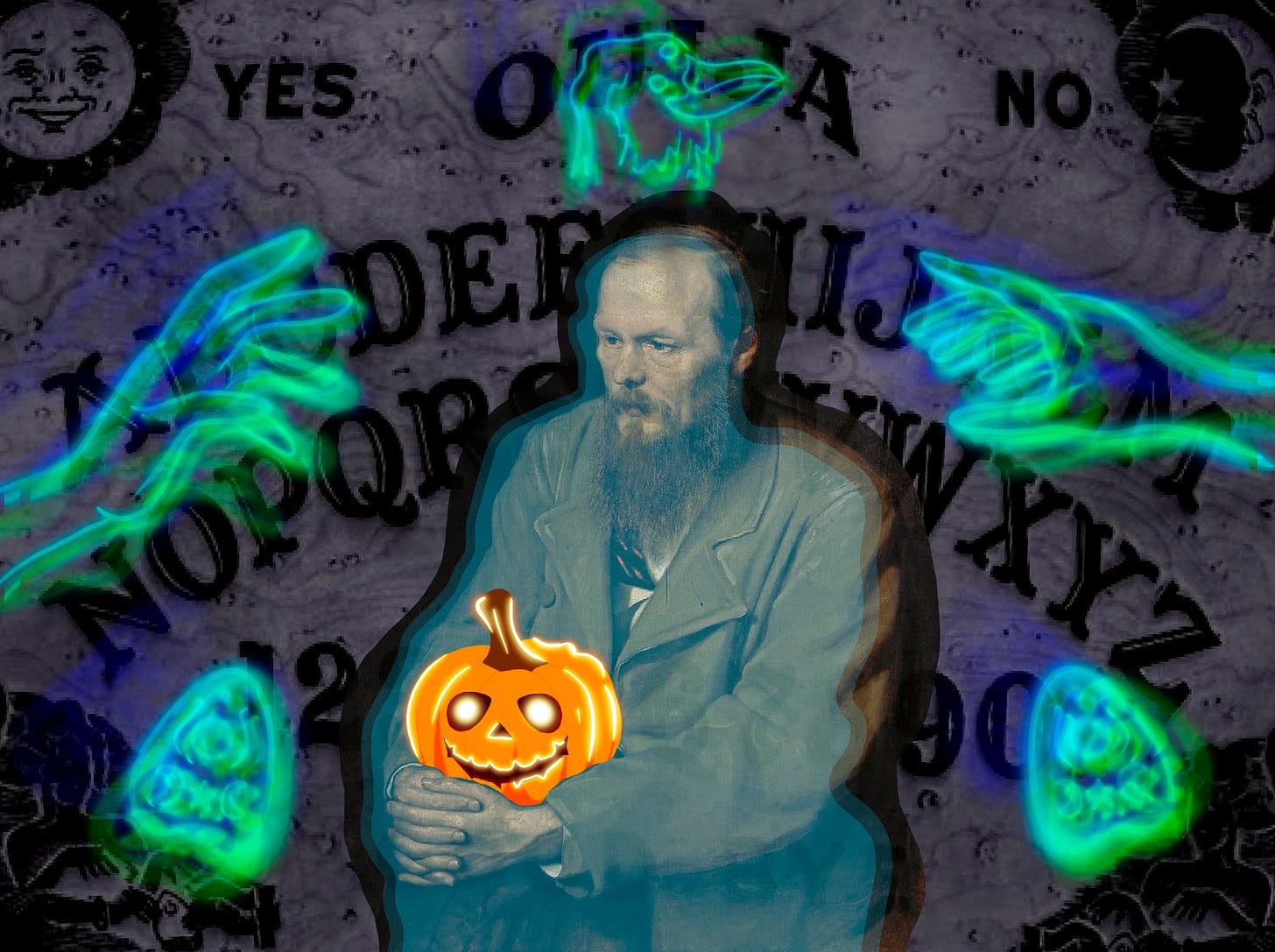Plans for the End of 2024 and Ideas for 2025
Today, I've decided to revise our schedule and outline plans for the remainder of the year. I'd also like to brainstorm ideas for our club in 2025.
Today, I've decided to revise our schedule and outline plans for the remainder of the year. I'd also like to brainstorm ideas for our club in 2025.
I've updated the schedule for the final quarter of 2024. For those reading "Crime and Punishment," the article publication dates have been slightly adjusted.
Also, during this time you will be able to read 6 articles that might interest you.
Dostoevsky's séance experiences and an unexpected canine savior (October 20)
The mystery of Dostoevsky's father's death: Was he murdered? (October 31)
"Crime and Punishment" as a polyphonic novel: Insights from our slow reading. What did Dostoevsky leave unsaid?
Psychiatry in the mid-19th century: Raskolnikov's potential diagnoses then and now (with spoilers for "Crime and Punishment") — (December 10)
Literary connections in "Crime and Punishment": Its inspirations and legacy. Exploring the novel's place in literature and discussing reading options. We'll also consider plans for 2025. (December 23)
2 stories in December
In December, I encourage you to read and discuss 2 stories:
one by Dostoevsky - "Bobok"
the second by Gogol - "The Nose".
"Bobok" is a mystical, short story about people after death. Interestingly, there might be one of the characters from "Crime and Punishment" in it, which could also be a topic for discussion after reading the novel. The story contains many ideas of Dostoevsky's philosophy and worldview, and it's also one of the examples of his polyphony.
You can read the text of the story, for example, here in Constance Garnett's translation.
"The Nose" (1833) is a story by Gogol, which can be called "magical realism". How would you feel if your own nose started living its own life? While reading "Crime and Punishment", I often mentioned Gogol, so this will be a great opportunity to read him as well. We'll see how you like his style. Besides, it's good to end the year not with a depressing text, but with humor.
The text can also be found online for free for educational and research purposes, like ours. For example, you can read it here.
Now I want to ask you a few questions to understand what to do in 2025 and whether to do anything at all.
I would like to participate in a long, slow reading of a large novel?
Which novel do I want to read in 2025?
Are you interested in reading not only Dostoevsky but also books related to him? For example, books that Dostoevsky loved or read, as well as those inspired by his works?
Share your ideas about what you'd like to study or read. While we've focused on Dostoevsky, we could explore other authors who are important to 19th-century Russian literature, like Gogol, Turgenev, Goncharov, Nekrasov, Saltykov-Shchedrin, Tolstoy, and others. Feel free to suggest any writers who interest you. These 19th-century authors are closely interconnected, making them all relevant to our Dostoevsky-centered club.










I plan to get involved starting in 2025, and am very excited as I love Dostoevsky (crime and punishment is my favorite book of all time), so I am down for whatever is brought in 2025! Also excited to start going through the back log 😊
Thank you for all your work, Dana. I am amazed, and so grateful for how much you have put into this read. I read The Brothers Karamazov years ago, but was aware at the time of things that I didn't understand. Doing it again with you would be so good, but I will happily do whatever you decide on. There is a huge treasure trove waiting to be read. When, and if, you decide on a paid option, I will be very happy to pay. ❤️